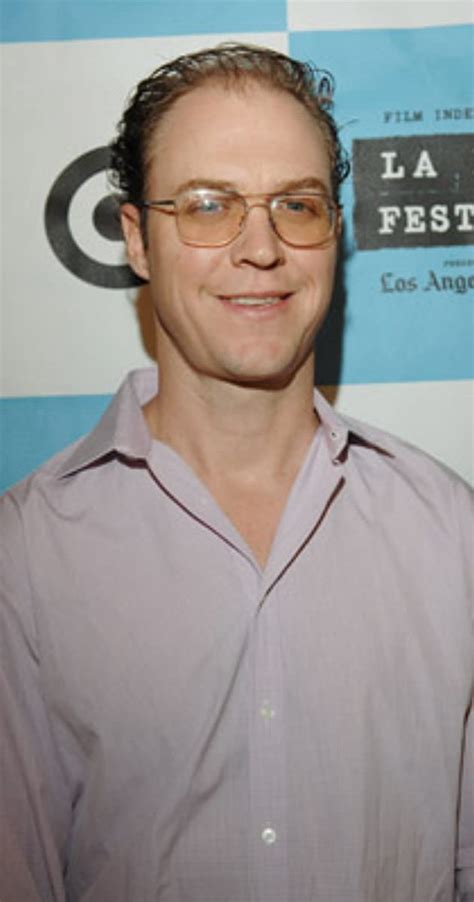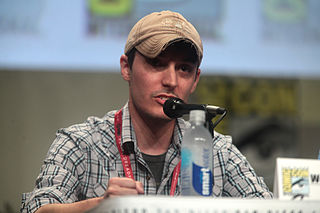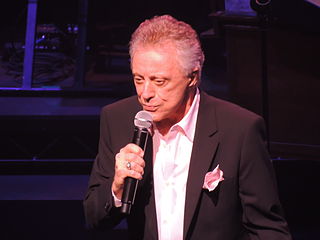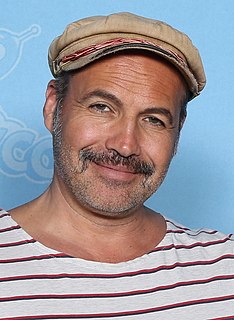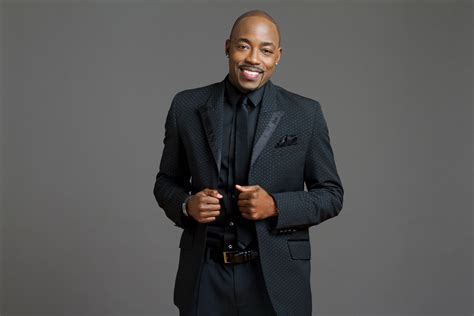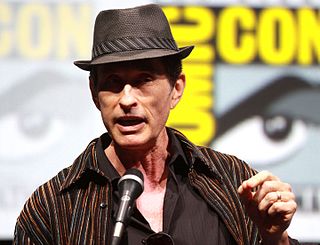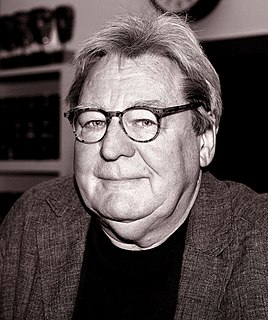A Quote by George Ratliff
If there's a cutaway, you need to get it then because it's only going to last [a few moments]. You have to edit the movie as you're shooting it in your head and communicate with your crew about how it's going to work. While making a movie, you have the luxury of storyboards and a script and a bigger crew and actors. I mean, it's so much easier.
Related Quotes
You never have any idea where your movie's going to go when you're shooting - you're in this little bubble. Everything you care about is getting the next step right: getting the script right, finding the right actors, shooting it. Then you spend half a year in a dark room editing your film, and you don't talk to anybody.
In the old days when I first was coming up, you would turn up on set in the morning with your coffee, script, and hangover and you would figure out what you were going to do with the day and how you were going to play the scenes. You would rehearse and then invite the crew in to watch the actors go through the scenes. The actors would go away to makeup and costume and the director and the DP would work out how they were going to cover what the actors had just done.
On 'Paranormal Activity,' it worked to my advantage not to have much of a crew, but on a bigger movie, where you have to work with a larger group of people who basically become your second family for a few months, it can be a great experience. Even though all of my projects are small scale compared to most Hollywood productions.
I read the script for 'Somnia' when I was filming 'Oculus,' and I remember calling my manager going, 'I really need to do this movie,' and he's like, 'How about you finish this one first and then you see it?' I was like, 'I don't need to. I don't need to. You need to read this. I need to do this movie. The script is very good.'
I love to tell stories, but the making is less comfortable. I like to be private, and being in the middle of a film crew with the least amount of privacy is the discomfort of shooting a movie. For me, the editing is the great moment when I can bring back ideas and realize the movie for the last time before I hand it to the audience.
I read the Phantom comics when I was in Australia shooting 'Dead Calm'' and when one of the crew told me that there were plans for a movie, I went for it. That was in 1987 and I told (producer) Graham Burke I was going to be the Phantom. We had a laugh about that recently because you usually get what you deserve, not what you desire, and that is especially true in Hollywood!
I've learned that if you can keep it calm and keep it fun and loose, then that allows for ideas from the crew. I don't care where an idea comes from, whether it's the crew or my producer or the actors or anybody. I just want it to be fun, and if that's the case, then I think you make a better movie.
A huge part of what we do as actors is learning to ignore the camera, as if it's not even there, while simultaneously being very aware of the camera and what it's capturing, because you can give the best performance of your life, but if you do it with the back of your head facing the camera, it's going to get cut from the movie.
Somebody comes to your house. You know they're coming, so it's not a surprise. And they give you an envelope that has your scenes in it. And they sit in the car outside for a half an hour while you read your scenes, then they ring your doorbell and you give your scenes back. Then you shoot the movie a few weeks later or something. The next time you see your scenes is the night before you start shooting. I never read the script [Blue Jasmine], so I didn't really know what it was about.
